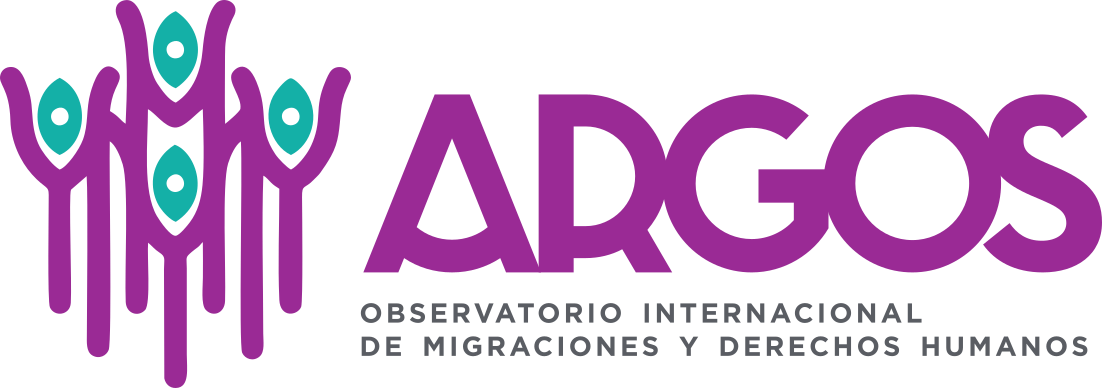Coronavirus, labor and migration
The Covid-19 pandemic has generated a series of consequences both in terms of migratory flows towards Europe, as well as in relation to the treatment that immigrants have received as a consequence of the application of confinement measures, the loss of jobs derived from the economic contraction of 2020 and, more recently, their inclusion in the vaccination plans of each country belonging to the European Union.
The economic contraction itself is a migration push factor, which can be felt in European economies. The United Kingdom, for example, has around 1.7 million unemployed people. Recently, it became evident that the British population is experiencing a drop in its population, closely related to the exodus that the pandemic has generated in the city of London. At least 1.3 million people are known to have left the country between the third quarter of 2019 and the third quarter of 2020, according to data from the Centre of Excellence for Economic Statistics. London alone has lost about 700 thousand inhabitants who have in common being born abroad1. In this case, it should be noted that these figures include immigrants from European Union countries and from non-EU countries.
As has also been the case in countries such as Spain, migrants tend to be more vulnerable to job loss due to the type of work they tend to do, often in the service sector, which has generated some fears of labor shortages.
On the other hand, confinement measures pose a challenge for migrants in irregular situations. Strict confinement implied remaining without access to resources for the acquisition of food. This lack was solved with government aid for all populations, except for those groups of people who remained in irregular situations. In the case of Spain, the system for the reception of refugees, migrants and asylum seekers maintained the economic aid programs, and the protocol requiring the presentation of certain documents was even made more flexible for the duration of the state of alarm. However, these measures did not contemplate any type of provision in favor of illegal migrants without interaction with the reception system, which is why the mechanisms of solidarity among immigrants and aid from non-governmental organizations have been fundamental2.
Immigrants as carriers of the virus
The coronavirus has also been instrumentalized to try to further hinder the arrival of migrants across the Mediterranean Sea. Apart from the actual closure of ports, attempts have also been made to stigmatize the migrant population as carriers of the virus.
The debate between the protection of European citizenship and the rights of migrants only intensified during the most difficult periods of the pandemic. Thus, it was that in April 2020, the Italian government approved the closure of ports following the request for authorization to dock the ship Alan Kurdi, with 150 migrants, a measure that generated a situation of great chaos. It was from then on, that Italy began to provide boats for the migrants to spend a quarantine period before they could reach port, which was the alternative to the hot returns3.
The interaction between the refugee camps, mainly in the Canary Islands and on the Greek island of Lesbos, and the coronavirus has led to real crises and situations of serious violation of the human rights of refugees. The fire that broke out in November 2020 in the Moria camp, when some 12,000 people were left homeless, including a significant proportion of women and children, put the solidarity of the governments of the different countries to the test. This situation was largely due to the reluctance of the members of the European Union to detain refugees in camps, thus preventing them from being transferred to other countries and from entering the respective reception systems. The pandemic crisis served largely as an excuse to prolong a situation that was clearly unsustainable, even though sufficient resources were available to prevent such events and to control the spread of the coronavirus4.
Vaccination of immigrants
The coronavirus crisis marked a break in solidarity between nations. During the first months of the pandemic, there were frequent reports of fierce disputes between countries over the control and seizure of protective equipment against the virus, particularly masks. More recently, we have witnessed a new chapter in the same story, but this time with newly developed vaccines, which ended up being controlled by the richest countries, leaving the others to wait. In this case, the warnings of experts have been ignored, who point out that in reality vaccination will only be effective if it is carried out in a globally coordinated manner.
In this regard, one might ask what is the disposition of the European Union in this regard. The European Commission issued recommendations for vaccination plans, including the consideration of refugees, particularly those in internment centers or camps. The European Center for Disease Control and Prevention was of a similar opinion, arguing that both migrants and refugees should be considered as vulnerable groups, and should be vaccinated.
However, compliance with these recommendations is not unanimous, although it is not yet known with certainty how each country will act, since not all of them have specified it in their plans. However, it is already known that the Polish government will only vaccinate foreigners with legal residence. While countries such as Germany, the Netherlands, France and Spain do include foreigners in their own plans. In addition, it is known that the Greek government, with the support of the United Nations High Commissioner for Refugees, is making progress in vaccinating people staying in refugee camps in Greece5.
It can be concluded, after an observation of the processes in which the coronavirus interacts with migrants and refugees in the European Union, that there is no common policy to address the problem, so that some countries have shown much more solidarity and willingness to respect the human rights of these populations than others.
References
1 Available at: https://www.bbc.com/mundo/noticias-internacional-55855960
3 Available at: https://www.efe.com/efe/espana/destacada/el-miedo-al-virus-no-viaja-en-patera/10011-4263093
4 Available at: https://www.efe.com/efe/espana/sociedad/unos-200-refugiados-entran-en-el-nuevo-campo-de-lesbos-las-primeras-24-horas/10004-4341671
5 Available at: https://www.lavanguardia.com/vida/20210210/6232388/paises-europeos-refugiados-vacunacion-covid.html

